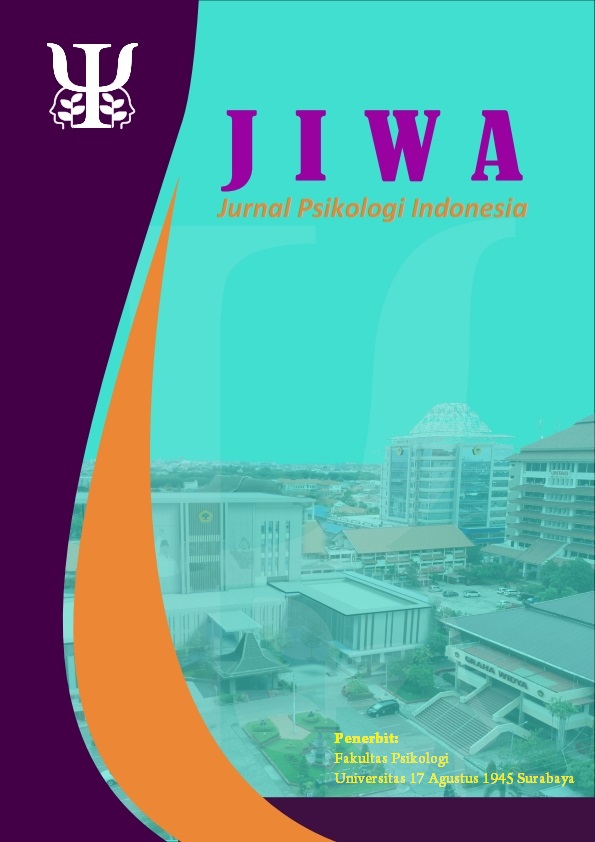Subjective Well-Being Mahasiswa Skripsi : Bagaimana Peranan Stres Akademik?
DOI:
https://doi.org/10.30996/jiwa.v1i2.9908Keywords:
Academic Stress, Subjective well-being, University Students, ThesisAbstract
This study aims to determine the relationship between academic stress and subjective well-being in final students who are pursuing a thesis. This research is a type of quantitative research using correlational research. The subjects in this study were 112 students. The instruments in this study used the Subjective Well-Being scale, namely (SWLS) Stratification with Life Scale and Positive and Negative Affect Scale and Academic Stress scale. Hypothesis testing was carried out using product moment correlation techniques. The results showed a significant negative relationship between academic stress and subjective well being in final students who are pursuing a thesis, meaning that the higher the academic stress, the lower the subjective well-being of students. Conversely, the lower the level of academic stress, the higher the subjective well being of students.
Penelitian ini bertujuan untuk mengetahui hubungan antara stres akademik dengan subjective well-being pada mahasiswa akhir yang sedang menempuh skripsi. Penelitian ini merupakan jenis penelitian kuantitatif dengan menggunakan penelitian korelasional. Subjek dalam penelitian ini sebanyak 112 mahasiswa. Instrumen pada penelitian ini menggunakan skala Subjective Well-Being yaitu (SWLS) Stratification with Life Scale dan Positif and Negative Affect Scale dan skala Stres Akademik. Pengujian hipotesis yang dilakukan menggunakan teknik korelasi product moment. Hasil penelitian menunjukan adanya hubungan negatif yang signifikan antara stres akademik dengan subjective well being pada mahasiswa akhir yang sedang menempuh skripsi, artinya semakin tinggi stres akademik, maka semakin rendah subjective well-being mahasiswa. Sebaliknya semakin rendah tingkat stres akademik, maka semakin tinggi subjective well being mahasiswa.







